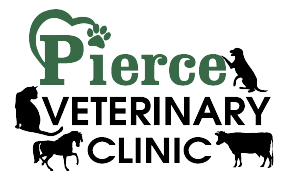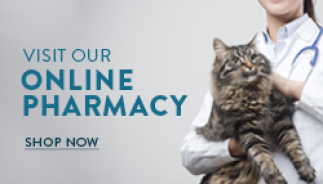Equine Wellness Guidelines
Annual Vaccinations
The vaccines and vaccine protocols listed below are tailored to our practice and follow the guidelines of the AAEP. Recommendations are intended for healthy, adult horses *Please contact the clinic
with questions regarding other life-stages or circumstances.
| Eastern Equine Encephalitis, Western Equine Encephalitis |
Encephalomyelitis is caused by a virus, which is transmitted by mosquitos. The virus causes inflammation of the brain and spinal cord. The disease tends to be fatal in non-vaccinated horses. | Annual – core vaccine recommended for all horses |
| Tetanus | Tetanus is a disease caused by a specific toxin of a bacteria (Clostridium tetani) which usually enters the body through wounds. It is characterized by spasmodic contractions and rigidity of some or all of the voluntary muscles (especially of the jaw, face and neck). The bacteria is found in the soil. The vaccine should be boostered in case of cuts, surgery, or pentrating wounds. | Annual – core vaccine recommended for all horses |
| West Nile Virus | West Nile virus is transmitted by mosquitos. The virus causes inflammation of the brain and spinal cord. | Annual – core vaccine recommended for all horses |
| Rabies | Rabies is a viral disease that infects the nervous system of all mammals. It is transmitted through contact with the saliva of infected animals. It is 100% fatal. | Annual – core vaccine recommended for all horses |
| Influenza | Influenza is a virus that causes high fever and respiratory infection. The vaccine is not 100% effective, and the protection is short lived. Horses travelling to shows, sales, racing events, etc. should be vaccinated every 3 months. Horses that do not travel but have risk of exposure should be vaccinated at least twice a year. | Bi-Annual – for at risk horses ( shows, boarding stables, travel, etc) |
| Rhinopneumonitis | Rhinopneumonitis is a herpes virus which causes respiratory infections, abortions, and inflammation of the spinal cord. The vaccine is not 100% effective and the protection is not long lasting. Horses that are travelling to shows, races, sales, etc. should be vaccinated every 3 months. Pleasure horses that do not travel but have possible exposure should be vaccinated twice a year. The vaccine does not protect against the neurologic form of the disease. | Bi-Annual – for at risk horses ( shows, boarding stables, travel, etc) Broodmares at 5, 7, and 9 months of pregnancy |
| Strangles | Strangles is a bacterial disease caused by Streptococcus equi. It is highly contagious and causes high fever, abscessed lymph nodes ,and respiratory infection. Horses may develop guttural pouch infections, sinus infections, purpura hemorrhagica, and laryngeal paralysis. There is an intranasal vaccine which is more effective than the intramuscular vaccine. The vaccine is given once a year except in endemic barns( that have frequent outbreaks) where semiannual vaccination is recommended. | Annual - for at risk horses ( shows, boarding stables, travel, etc) |
| Potomac Horse Fever | Potomac Horse Fever is caused by the parasite Ehrlichia risticii. Horses are infected through small land snails that carry the parasite. It is not contagious and occurs more commonly in wet areas. The disease causes high fever, laminitis, and severe diarrhea. | Annual – for horses in high endemic areas |
Parasite Control
Parasite burdens can be greatly reduced by improving manure management. Removing manure daily from feeding areas, routine dragging of pastures and paddocks during dry/hot weather, and rotational
grazing are all ways to reduce parasite exposure. The next important step in controlling parasites is having a de-worming program. Due to the development of resistant parasites, many equine
veterinarians have moved away from a one size fits all deworming program. At Pierce Vet Clinic we recommend customizing your deworming program to fit each horse's specific needs, all while
reducing the risk of developing resistant parasites.
Fecal egg counts allow us to determine if a horse sheds a high, medium, or low amount of parasite eggs. They also allow us to determine if the de-wormer that we choose is actually effective. A horse's de-worming schedule will be individually determined, and may not be the same for all in the same paddock/pasture on the farm. Below outlines our deworming strategy:
-Initial fecal egg count (for all fecal egg counts bring in a fresh fecal sample, less than 4 hours old, sealed in a plastic bag, and refrigerated until arrival at the clinic during regular business hours)
-De-worming will be recommended for horses shedding >200 eggs/gram
-For horses that receive a de-wormer, it is recommended to bring in another fecal sample 7-14 days following the de-worming to ensure that the dewormer was effective.
-Based on the intial fecal egg count values horses will be classified as either high (>500 eggs/gram), medium (200-500 eggs/gram), or low (<200 eggs/gram) shedders. High shedders are recommended to be de-wormed with an effective dewormer 4-6 times per year, medium shedders 3-4 times per year, and low shedders 1-2 times per year.
-Fecal egg counts should be continued 1-2 times per year to ensure your horse is appropriately classified.
-It is also important to note: minimally once yearly all horses should be de-wormed with an ivermectin product containing praziquantal (Zimectrin Gold, Equimax) to defend against tapeworms and bots, which are very difficult to find on a fecal exam even if they are present in the horse.
Specifications for Foals
Foals are at high risk of dangerous parasite burden and should be de-wormed monthly beginning at 1 month of age with pyrantel pamoate (Strongid) or fenbendazole (Panacur or Safe-Gaurd) until 6 months of age, a fecal exam is recommended at 3-4 months of age, and again between 6-8 months of age to determine further deworming needs.
Please feel free to call with any questions about developing a strategic deworming program for your horses.
Annual/Bi-Annual Dental Exam
Dental health is a key component to a horse’s overall well being. It is recommended to have a full examination yearly in healthy adult horses, and bi-annually in young and geriatric horses as
well as horses previously diagnosed with dental issues. At these examinations, most horses benefit from a floating (filing sharp points off the teeth) procedure. Most often, power and
manual dentistry tools are used to correct various dental problems. We no longer offer any dental care services, but we do recommend horses have annual/ bi-annual dental
exams.
Annual Coggins Testing
A Coggins test is a simple blood test looking to see if your horse is EIA (equine infectious anemia) negative. EIA is an incurable disease that still persists in the US and typically is
transmitted by biting flies. A negative Coggins test is needed for travel, most shows/events, and most boarding facilities. In the state of Wisconsin, Coggins test papers are acceptable
for the calendar year they were issued, meaning every Coggins test paper expires at the following January 1st. Remember to plan ahead to avoid rushed tests!
See our Resources page for more Equine information.
Where to Find Us:
Pierce Vet Clinic
707 N Brown St
PO box 657
Ellsworth, WI 54011
Phone: (715)-273-4632
Fax: (715)-273-7970
Email:
piercevetclinic@yahoo.com
Follow us on Facebook!
Regular Business Hours
Monday-Friday
8:00 AM to 5:00 PM
Saturday
8:00 AM to 1:00 PM
Your pet's own online profile!
Apply for your Care Credit Account today!







